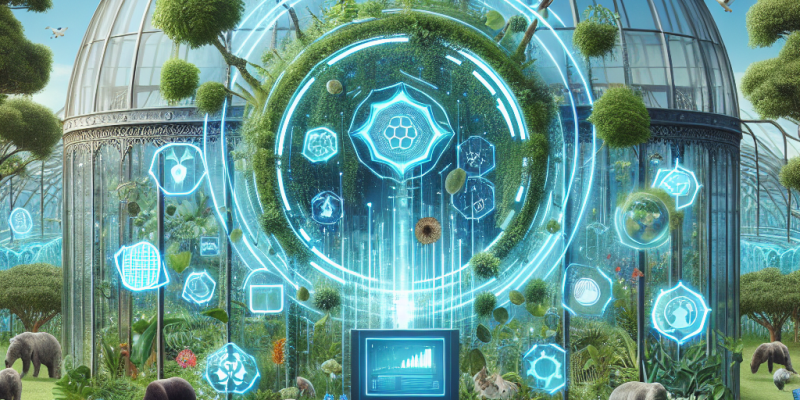Sustainable Tech: Innovations Driving Environmental Responsibility in the Digital Age

In an era where technology seamlessly integrates into everyday life, it is imperative to consider its environmental impact. As the digital age evolves, so too does the responsibility of tech developers and consumers to prioritize sustainability. Sustainable technology—often termed "sustainable tech"—encompasses innovations that reduce environmental impact while promoting social and economic growth. This article explores how various technological advancements are driving environmental responsibility and fostering a more sustainable future.
Understanding Sustainable Tech
Sustainable tech focuses on minimizing the adverse effects of technology on the environment. It aims to create solutions that reduce carbon footprints, conserve natural resources, and promote energy efficiency. This ethos encompasses a wide range of fields, including renewable energy sources, green manufacturing processes, waste management, and sustainable agriculture practices.
Key Innovations in Sustainable Tech
1. Renewable Energy Innovations
The transition to renewable energy sources such as solar, wind, hydroelectric, and geothermal power is one of the most significant advancements in sustainable tech. Technologies like solar panels have become increasingly efficient and affordable, making them accessible to both homes and businesses. Innovations in wind turbine design have also improved energy capture and storage capabilities, paving the way for more reliable wind energy solutions.
2. Smart Grids and Energy Management
Smart grids revolutionize the way energy is distributed and consumed. By using advanced communication technologies, smart grids facilitate real-time monitoring and automatic adjustments to energy distribution, helping optimize usage and reduce waste. With energy management systems, consumers can monitor their energy consumption patterns and adjust their usage, contributing to significant reductions in electricity waste.
3. Sustainable Transportation
The transportation sector is a significant contributor to greenhouse gas emissions. Innovations in electric vehicles (EVs), hydrogen fuel cells, and autonomous ridesharing services are driving a shift toward more sustainable modes of transportation. The development of EV charging infrastructure is making electric cars more practical, while autonomous technologies are optimizing traffic flow, reducing congestion, and minimizing emissions.
4. Circular Economy Technologies
The circular economy promotes the idea of designing products for longevity, reparability, and recyclability. Technological advancements in materials science have enabled the development of biodegradable plastics, while recycling technologies have improved the processing of electronic waste (e-waste). Companies are increasingly adopting practices that focus on remanufacturing and refurbishing products, contributing to a significant reduction in resource extraction and landfill waste.
5. Agriculture and Food Tech
Technological innovations in agriculture are fostering sustainable practices that improve yields while minimizing environmental impact. Precision farming employs drones, sensors, and data analytics to optimize planting, irrigation, and pesticide usage. Vertical farming and hydroponics allow for localized food production, reducing the carbon footprint associated with transportation. Furthermore, lab-grown meats and plant-based proteins are emerging as alternatives to traditional animal agriculture, lowering the emissions tied to livestock farming.
6. Sustainable Building Technologies
Green construction practices are transforming how buildings are designed and constructed. Innovations such as energy-efficient appliances, smart HVAC systems, and sustainable materials (like bamboo and recycled steel) are making buildings more eco-friendly. Plus, the integration of smart home technologies allows homeowners to monitor and control energy consumption, further enhancing sustainability in the built environment.
The Role of Policy and Education
While technological innovations are crucial in fostering sustainability, supportive policies and consumer education play an indispensable role. Governments and organizations must collaborate to create regulations that promote sustainable practices while incentivizing businesses to adopt environmentally friendly technologies. Additionally, raising awareness about sustainable options empowers consumers to make informed choices, driving demand for responsible products and practices.
Conclusion
Sustainable tech represents a pathway to balance technological advancement with environmental stewardship. Innovations across various sectors are demonstrating that it is not only possible to integrate eco-friendly practices into the digital age but also necessary for the health of our planet. As we continue to innovate, it is essential for all stakeholders—governments, companies, and consumers—to commit to sustainability, ensuring that technology serves as a force for good in safeguarding our environment for future generations. In embracing sustainable tech, we harness the potential to create a prosperous, equitable, and environmentally responsible world.














